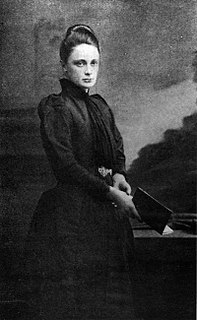A Quote by Roger Bacon
As regards authority I so proceed. Boetius says in the second prologue to his Arithmetic, 'If an inquirer lacks the four parts of mathematics, he has very little ability to discover truth.' And again, 'Without this theory no one can have a correct insight into truth.' And he says also, 'I warn the man who spurns these paths of knowledge that he cannot philosophize correctly.' And Again, 'It is clear that whosoever passes these by, has lost the knowledge of all learning.'
Related Quotes
If people depend on me to be a man of truth, I have to prove again and again and again and again that I am a man of truth. It cannot be that on Monday I am a man of truth, on Tuesday I speak three-quarters truth, Wednesday I speak half-truth, on Thursday I speak one-quarter truth, on Friday I don't speak at all, and on Saturday I can't even think how to speak the truth.
All those formal systems, in mathematics and physics and the philosophy of science, which claim to give foundations for certain truth are surely mistaken. I am tempted to say that we do not look for truth, but for knowledge. But I dislike this form of words, for two reasons. First of all, we do look for truth, however we define it, it is what we find that is knowledge. And second, what we fail to find is not truth, but certainty; the nature of truth is exactly the knowledge that we do find.
Now the Apostle, under the inspiration of the Holy Spirit, says, "Knowledge inflates: but love edifies." The only correct inerpretation of this saying is that knowledge is valuable when charity informs it. Without charity, knowledge inflates; that is, it exalts man to an arrogance which is nothing but a kind of windy emptiness.
[Mathematics] is security. Certainty. Truth. Beauty. Insight. Structure. Architecture. I see mathematics, the part of human knowledge that I call mathematics, as one thing - one great, glorious thing. Whether it is differential topology, or functional analysis, or homological algebra, it is all one thing. ... They are intimately interconnected, they are all facets of the same thing. That interconnection, that architecture, is secure truth and is beauty. That's what mathematics is to me.
Whosoever wishes to know about the world must learn about it in its particular details. Knowledge is not intelligence. In searching for the truth be ready for the unexpected. Change alone is unchanging. The same road goes both up and down. The beginning of a circle is also its end. Not I, but the world says it: all is one. And yet everything comes in season.
If you are a strong man, very good! But do not curse others who are not strong enough for you. ...Everyone says, "Woe unto you people!!" Who says, "Woe unto me that I cannot help you?" The people are doing all right to the best of their ability and means and knowledge. Woe unto me that I cannot lift them to where I am!
Because of its concrete content, sense-certainty immediately appears as the richest kind of knowledge, indeed a knowledge of infinite wealth for which no bounds can be found, either when we reach out into space and time in which it is dispersed, or when we take a bit of this wealth, and by division enter into it. Moreover, sense-certainty appears to be the truest knowledge ... but, in the event, this very certainty proves itself to be the most abstract and poorest truth. All that it says about what it knows is just that it is; and its truth contains nothing but the sheer being of the thing.
A learned man is a sedentary, concentrated solitary enthusiast, who searches through books to discover some particular grain of truth upon which he has set his heart. If the passion for reading conquers him, his gains dwindle and vanish between his fingers. A reader, on the other hand, must check the desire for learning at the outset; if knowledge sticks to him well and good, but to go in pursuit of it, to read on a system, to become a specialist or an authority, is very apt to kill what suits us to consider the more humane passion for pure and disinterested reading.
The first thing the reasonable man must do is to be content with a very little knowledge and a very great deal of ignorance. The second thing he must do is to make the utmost possible use of the knowledge he has and not waste his energy crying for the moon. The third thing he must do is try and see clearly where his knowledge ends and his ignorance begins.
There are in fact four very significant stumbling blocks in the way of grasping the truth, which hinder every man however learned, and scarcely allow anyone to win a clear title to wisdom, namely, the example of weak and unworthy authority, longstanding custom, the feeling of the ignorant crowd, and the hiding of our own ignorance while making a display of our apparent knowledge.
God has come again and again in various Forms, has spoken again and again in different words and different languages the Same One Truth - but how many are there that live up to it? Instead of making Truth the vitalbreath of his life, man compromises by making over and over againa mechanical religion of it - a handy staff to lean on in times of adversity, a soothing balm for his conscience or a tradition to be followed.








































